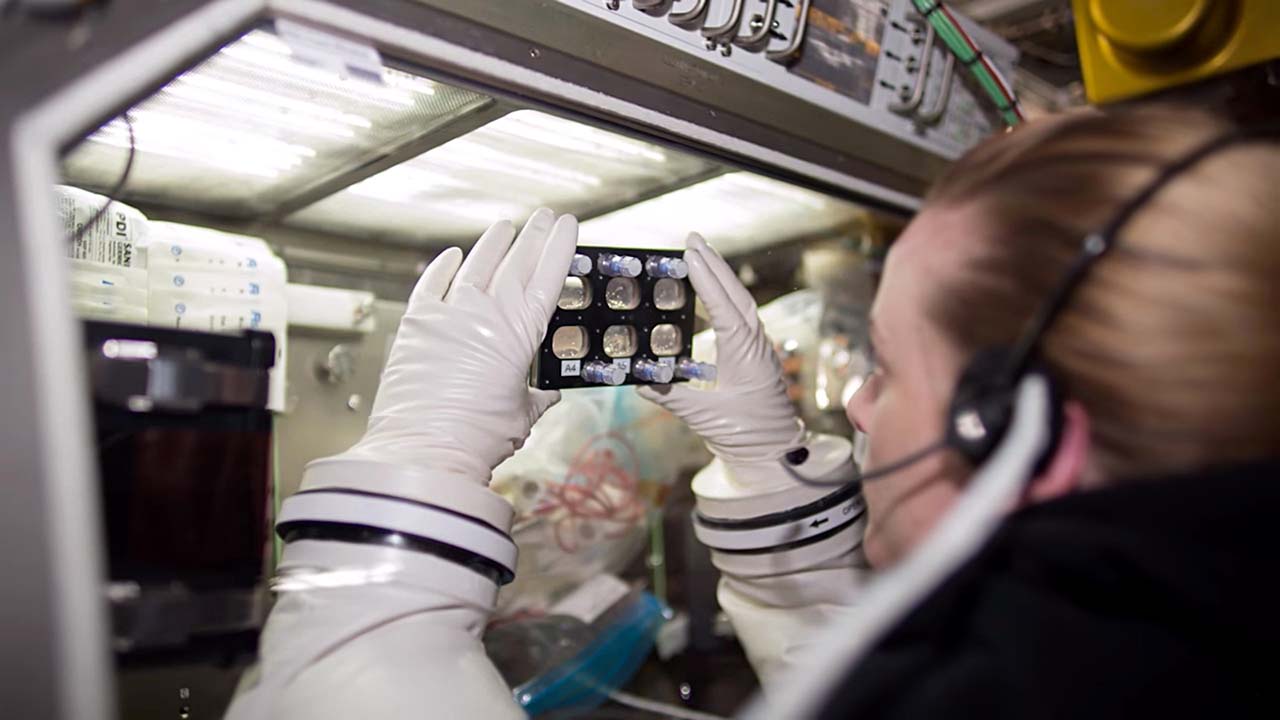Cardiovascular
Heart Cells in Space Help Advance Treatments for Cardiovascular Disease
KENNEDY SPACE CENTER (FL), September 12, 2023 – Heart disease is the leading cause of death globally, and once cardiovascular tissue is damaged, there’s no means of restoring its function. But it’s possible damaged tissue could be regenerated via stem cell therapies. To that end, a team of scientists took their research to new heights by leveraging the International Space Station (ISS) National Laboratory to study microgravity’s effects on heart cells.
Induced pluripotent stem cells (iPSCs), which can transform into many different cell types including heart cells, are at the forefront of regenerative medicine research. Previous experiments have shown that spaceflight induces physiological changes in cardiac function, but this pioneering experiment was the first to study how microgravity affects the human heart and its functionality at the cellular level.
This project is featured in the latest issue of Upward, official magazine of the ISS National Lab. Upward is dedicated to communicating results of ISS National Lab-sponsored experiments that demonstrate the value of space-based research and technology development. Read the article “Stem Cells in Space: What Microgravity Can Teach Us About the Human Heart” to discover how scientists are leveraging the orbiting laboratory for research that could lead to new and improved treatments for heart disease on Earth.
Download a high-resolution for this release: NASA Astronaut Kate Rubins
Media Contact:
Patrick O’Neill
904-806-0035
[email protected]
# # #
About the International Space Station (ISS) National Laboratory: The International Space Station (ISS) is a one-of-a-kind laboratory that enables research and technology development not possible on Earth. As a public service enterprise, the ISS National Lab allows researchers to leverage this multiuser facility to improve life on Earth, mature space-based business models, advance science literacy in the future workforce, and expand a sustainable and scalable market in low Earth orbit. Through this orbiting national laboratory, research resources on the ISS are available to support non-NASA science, technology and education initiatives from U.S. government agencies, academic institutions, and the private sector. The Center for the Advancement of Science in Space, Inc. (CASIS) manages the ISS National Lab, under Cooperative Agreement with NASA, facilitating access to its permanent microgravity research environment, a powerful vantage point in low Earth orbit, and the extreme and varied conditions of space. To learn more about the ISS National Lab, visit our website.
# # #

